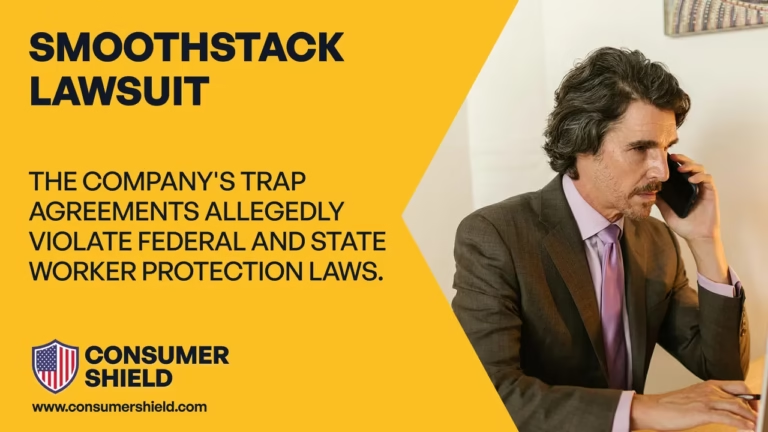The Smoothstack lawsuit has gained attention for raising concerns about employee rights and workplace practices. This article explores everything you need to know, from the key allegations to how employees can protect their rights. Let’s dive into this topic and break it down in simple terms.
What Is the Smoothstack Lawsuit?
The Smoothstack lawsuit refers to legal complaints filed by employees against Smoothstack, a company known for providing IT training and workforce solutions. Employees have raised concerns about specific practices they claim are unfair or restrictive. These allegations range from contract disputes to claims of withheld wages or limited opportunities.
At its core, the lawsuit highlights the tension between companies seeking to train employees and employees who feel the terms of their employment are not equitable.
Why Are Employees Filing Complaints?
Employees have come forward with complaints against Smoothstack for a variety of reasons. Many allege that the company imposes strict conditions on their contracts, making it hard to leave or switch jobs without facing financial penalties. Others argue that the work environment fosters inequality, citing unpaid hours or limited room for growth.
The underlying theme of these complaints often points to a lack of transparency. Employees claim that they weren’t fully informed about the long-term implications of their contracts or the potential consequences of breaching them.
What Are the Main Allegations?
The allegations against Smoothstack focus on several critical points:

- Restrictive Contracts: Employees claim the contracts include harsh penalties for leaving before the agreed time.
- Wage Discrepancies: There are accusations of wages being withheld or conditions that make fair payment difficult.
- Employee Rights Violations: Some believe Smoothstack’s policies infringe on fundamental labor rights, creating a challenging work environment.
Is Smoothstack Violating Employee Rights?
Many employees argue that the company’s practices cross ethical and legal boundaries. By enforcing strict penalties and allegedly withholding certain payments, Smoothstack may risk violating federal labor laws. However, these claims are subject to legal scrutiny, and the outcome depends on court interpretations.
How Common Are These Types of Lawsuits?
Lawsuits involving employee rights and contract disputes are relatively common, especially in industries like IT, where training and skill development programs are tied to contracts. These cases often arise when employees feel the agreements disproportionately benefit the employer.
How Does Smoothstack Respond to These Claims?
Smoothstack has responded to these allegations by stating that their contracts are standard within the industry and designed to protect the company’s investments in employee training. They emphasize that their goal is to foster a skilled workforce and provide opportunities for individuals entering the IT sector.
What Could This Mean for Future Employees?
The Smoothstack lawsuit could have significant implications for future employees. If the court rules in favor of the plaintiffs, it may lead to changes in how the company structures its contracts and policies. This could set a precedent for other companies in the same industry, making them more cautious about imposing restrictive terms.
For future employees, this case serves as a reminder to carefully review employment contracts before signing. Understanding the fine print is crucial to avoid unexpected challenges down the road.
What Are Your Rights as an Employee?
As an employee, you have rights protected under federal and state labor laws. These include:
- The right to fair wages for work performed.
- The right to a workplace free from discrimination and harassment.
- The right to review and negotiate contract terms.
Employees should also know they can seek legal advice if they believe their rights are being violated. Awareness of these rights can help you navigate tricky employment situations.
Can Employees Break a Contract?
Breaking a contract is possible, but it often comes with consequences. Employees tied to restrictive agreements, such as those alleged in the Smoothstack lawsuit, may face financial penalties or legal action if they leave prematurely. However, contracts that are deemed overly restrictive or unfair may not hold up in court.

Where Can You Seek Help?
If you feel trapped in an unfair contract, several resources can help:
- Employment Lawyers: Professionals who specialize in labor laws can offer tailored advice.
- Labor Rights Organizations: Nonprofits provide support and guidance for workers in similar situations.
- State Labor Departments: These agencies often mediate disputes between employers and employees.
Are These Cases Hard to Win?
Winning cases like the Smoothstack lawsuit can be challenging. Courts typically evaluate the evidence, including whether the employer violated labor laws or if the contract terms were unreasonable. Success often hinges on the clarity and strength of the employee’s claims.
Key Takeaways from the Smoothstack Lawsuit
- Always read your employment contract carefully.
- Seek legal advice if you suspect unfair practices.
- Understand your rights as an employee to make informed decisions.
How Does Smoothstack Respond to These Claims?
Smoothstack has maintained its stance, emphasizing that their contracts are necessary to protect their investments in employee training. They argue that the terms are clearly outlined and align with industry norms. However, critics believe more transparency and fairness are needed to address employee concerns.
The Bottom Line
The Smoothstack lawsuit highlights the importance of fair employment practices and the challenges employees face in navigating restrictive contracts. For anyone entering a similar work agreement, understanding your rights and seeking legal guidance can make a significant difference.
While the outcome of the lawsuit remains uncertain, it serves as a critical reminder for both employees and employers to prioritize fairness, transparency, and mutual respect in the workplace.


